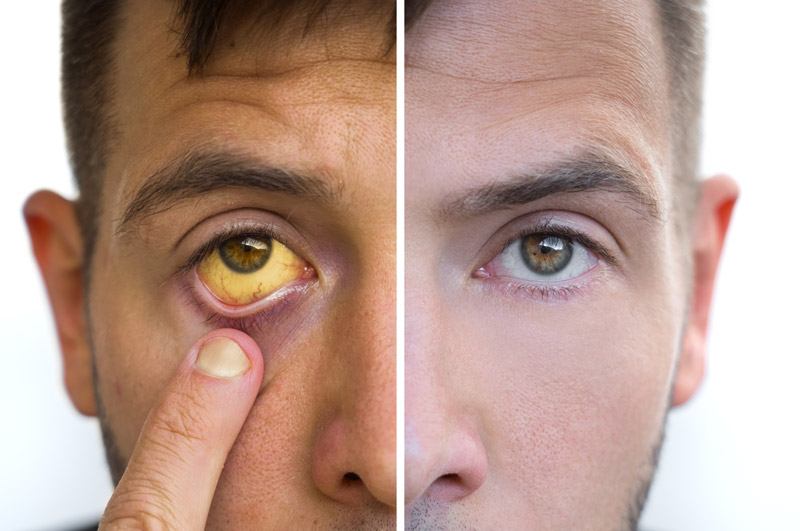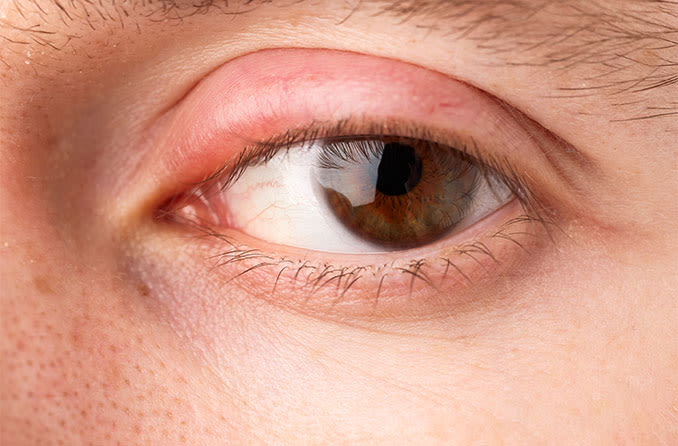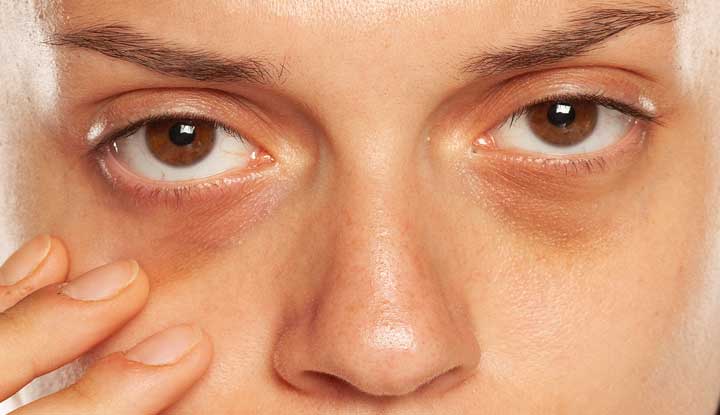Your face is often the first place where signs of illness appear. From subtle changes in skin tone to more obvious features like swelling or discoloration, your face can reveal underlying health problems before you even feel sick. Paying attention to these visual cues could help you detect medical issues early and seek treatment before they become severe.
Here are 8 key signs on your face that may signal you are sick. If you notice any of these symptoms, it might be time to consult a healthcare professional.
1. Pale Skin (Pallor)

What It Means: Anemia, Low Blood Pressure, or Poor Circulation
If your skin suddenly appears much paler than usual, it could be a sign of anemia or poor blood circulation. Anemia occurs when your body doesn’t have enough red blood cells to transport oxygen to tissues, leading to pale or "washed-out" skin. This change is especially noticeable on the face, lips, or inside the eyelids.
Other Symptoms to Watch For
- Fatigue or tiredness
- Dizziness or lightheadedness
- Shortness of breath
When to See a Doctor
If pallor persists or is accompanied by extreme fatigue, consult your doctor. Anemia caused by iron deficiency, vitamin B12 deficiency, or chronic illness requires medical treatment.
2. Yellowish Skin or Eyes (Jaundice)

What It Means: Liver Problems or Gallbladder Disease
A yellow tint on the face, especially in the eyes (sclera), may be a sign of jaundice, which is linked to liver dysfunction or gallbladder issues. The yellow color comes from an excess of bilirubin, a substance produced by the breakdown of red blood cells. Normally, the liver processes bilirubin, but if the liver is damaged or not functioning properly, bilirubin builds up in the body.
Other Symptoms to Watch For
- Dark-colored urine
- Pale-colored stools
- Itchy skin
- Abdominal pain (upper-right side)
When to See a Doctor
If you notice yellowing of your eyes or skin, it’s important to see a healthcare provider immediately. Conditions like hepatitis, liver cirrhosis, or bile duct obstruction can cause jaundice and require urgent medical attention.
3. Puffy Eyes or Swollen Eyelids

What It Means: Allergies, Kidney Disease, or Thyroid Issues
Swelling around the eyes can be caused by something as simple as allergies, but if the puffiness is persistent or severe, it could indicate kidney problems or thyroid disease. Swollen eyes are often a sign of fluid retention, which happens when your kidneys aren't filtering fluid properly or when your body's hormonal balance is off.
Other Symptoms to Watch For
- Swelling in the feet, ankles, or hands (edema)
- Changes in urination (frequent urination or reduced output)
- Persistent fatigue
When to See a Doctor
If your puffy eyes are accompanied by swelling in other areas of your body, see a doctor. Kidney disease or hypothyroidism can cause these symptoms, and early diagnosis is crucial.
4. Dark Circles Under the Eyes
What It Means: Dehydration, Lack of Sleep, or Allergies
Dark circles under the eyes are often seen as a cosmetic issue, but they can signal poor hydration, chronic sleep deprivation, or even allergies. When you don’t get enough sleep, the skin under your eyes becomes thinner, making the blood vessels underneath more visible. Similarly, allergies can cause blood to pool in this area, leading to a darker appearance.
Other Symptoms to Watch For
- Itchy, red eyes (allergy-related)
- Headaches (related to sinus problems)
- Dry, flaky skin (dehydration-related)
When to See a Doctor
If dark circles persist despite proper hydration, sleep, and allergy management, a healthcare provider can check for underlying health issues like anemia or nasal congestion.
5. Cracked Lips or Dry Mouth![Dry, Chapped and Cracked Lips — Kingsview Dental Clinic]()
What It Means: Dehydration, Vitamin Deficiency, or Diabetes
Dry, cracked lips are often linked to dehydration, especially during colder months. However, if your lips are persistently dry, even after drinking plenty of water, it could be a sign of a vitamin B deficiency or diabetes. Dry mouth (xerostomia) is another sign that could indicate high blood sugar levels, especially if you feel constantly thirsty.
Other Symptoms to Watch For
- Excessive thirst
- Frequent urination (a sign of diabetes)
- Burning or tingling sensation on the tongue
When to See a Doctor
If dry lips or mouth persist for an extended period, ask your doctor about testing for vitamin B deficiency or diabetes. Early detection is key to managing both conditions effectively.
6. Flushed, Red Face (Facial Redness)

What It Means: Rosacea, High Blood Pressure, or Menopause
A flushed or red face may simply be the result of embarrassment or exposure to the sun. But if the redness lasts for a long time or frequently recurs, it could be a sign of rosacea, high blood pressure, or hormonal changes during menopause. Rosacea causes persistent redness, especially on the cheeks, nose, and forehead, often accompanied by small, visible blood vessels. High blood pressure may also cause a flushed face.
Other Symptoms to Watch For
- Swelling or burning sensation (rosacea-related)
- Hot flashes (menopause-related)
- Headaches or dizziness (high blood pressure-related)
When to See a Doctor
If the redness doesn’t fade or is accompanied by other symptoms, like chest pain or headaches, consult a doctor. High blood pressure can be a silent killer, and early detection can save lives.
7. Sores, Blisters, or Rashes

What It Means: Herpes, Lupus, or Autoimmune Diseases
Facial sores or blisters could be a sign of a viral infection like herpes simplex virus (HSV), which causes cold sores around the lips and mouth. Alternatively, a "butterfly-shaped" rash on your face, especially across the nose and cheeks, could indicate lupus, an autoimmune disease where the body's immune system attacks healthy tissue.
Other Symptoms to Watch For
- Fatigue
- Joint pain (common in lupus)
- Fever or flu-like symptoms
When to See a Doctor
If you have a butterfly-shaped rash or persistent blisters that don't heal, seek medical attention. Early diagnosis of autoimmune diseases like lupus is crucial to prevent complications.
8. Drooping Eyelids or Facial Droop

What It Means: Stroke, Bell's Palsy, or Neurological Issues
A sudden droop on one side of your face or one eyelid could be a warning sign of a stroke or Bell's palsy. Stroke symptoms require immediate medical attention. Bell's palsy, on the other hand, is a temporary condition caused by inflammation of the facial nerve, which can result in facial drooping.
Other Symptoms to Watch For
- Slurred speech (stroke-related)
- Difficulty smiling (stroke or Bell's palsy)
- Numbness on one side of the body (stroke-related)
When to See a Doctor
If you experience sudden facial drooping, seek emergency medical help. A stroke is a medical emergency, and timely treatment can prevent long-term damage. For Bell's palsy, consult a healthcare provider, as treatment can speed up recovery.
Conclusion
Your face reveals more about your health than you might think. Changes in skin tone, swelling, discoloration, and unusual rashes can all point to underlying health problems. While some of these signs might be harmless or temporary, others could be early warnings of serious conditions like liver disease, stroke, or anemia.
If you notice any of these signs, especially if they persist or come with additional symptoms like fatigue, swelling, or pain, consult a healthcare provider. Early detection can lead to early treatment, potentially saving you from more severe health problems down the road.
Don’t ignore what your face is telling you. Your health depends on it!





